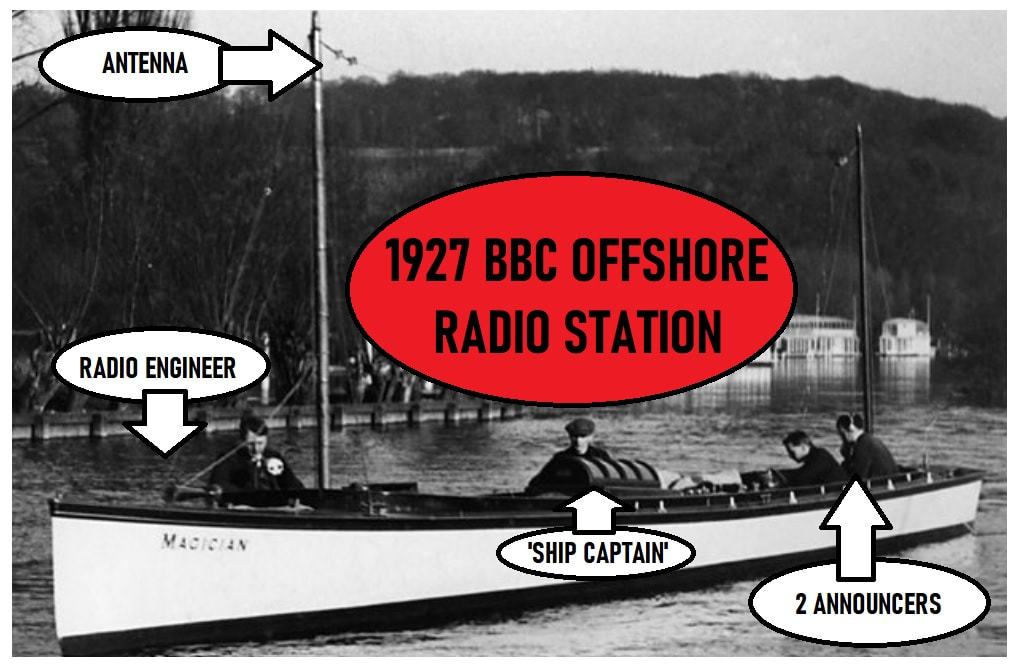|
On April 2, 1927, the new British Broadcasting Corporation chartered by the British Crown, commenced its first 'live' commentary that was transmitted from offshore (not on land), using a transmitter installed on board the vessel 'Magician'.
This was the first year of broadcasting for the new BBC which had taken over the facilities of the original British Broadcasting Company Limited (formed on October 18, 1922), and registered on December 15, 1922 which then operated under a Crown license until December 31, 1926. The original BBC company was finally liquidated on December 12, 1929. The vessel used by the BBC was a launch, and not a sea-going ship, because its voyage consisted of following the Oxford and Cambridge university rowers down the Thames River. On board were announcers Oliver 'Gully' Nickalls and Sir John Squire. Power for the transmitter was supplied from a generator and batteries that were supervised by a radio engineer. The transmission was made to shore by shortwave, where they were then received and retransmitted over BBC land-based stations to listeners. This 1927 broadcast from offshore was repeated the following year, and in the Nineteen Fifties, the PYE Group of companies headed by Charles Orr Stanley continued in this British offshore radio tradition using another vessel. Later still, the PYE Group used their knowledge coupled with a radio engineer who was employed by PYE after his retirement from the BBC, to begin the commercial operation which on March 27, 1964 was publicly identified as 'Radio Caroline'. Comments are closed.
|
Archives
November 2023
Copyright 2022 with all rights reserved.
|


 RSS Feed
RSS Feed